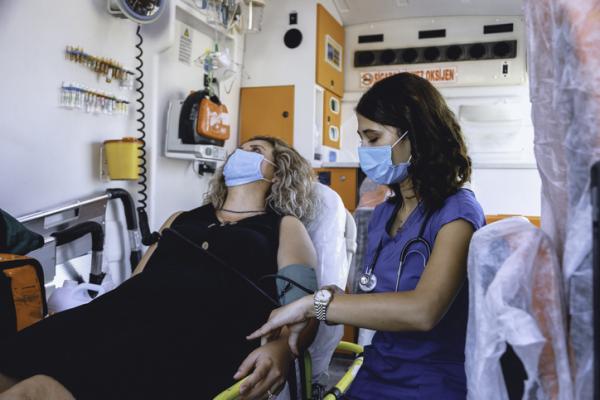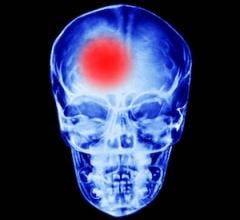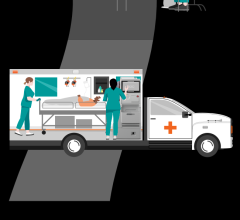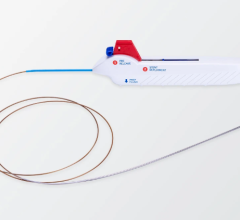
April 1, 2022 – Over the course of the pandemic, a number of studies examined whether COVID-19 patients were at increased risk for stroke, with variable results. Most studies, however, lumped all stroke patients together, rather than separating the less vs. more severe cases. A new study published last week in Neurosurgery looked only at the most severe stroke patients – those with large vessels occlusions (LVO) or blockages – in an international multicenter collaboration lead by Thomas Jefferson University. The work confirmed earlier case-series observations and an earlier paper published by the Jefferson team, that COVID-19 patients with severe stroke tended to be younger and healthier than most severe stroke patients, and also had more difficult-to-treat cases.
“At the start of the pandemic many neurosurgeons had observed an alarming trend in our severe stroke patients,” says corresponding author Jefferson vascular neurosurgeon Pascal Jabbour, MD, The Angela and Richard T. Clark Distinguished Professor of Neurological Surgery Division Chief of Neurovascular Surgery & Endovascular Neurosurgery—Jefferson Health. “The stroke patients who tested positive for COVID-19 were often younger, had multiple large vessels blocked, and often had worse outcomes than our usual patients. This international study confirms those early, alarming observations.”
To draw on a large patient cohort, Dr. Jabbour teamed up with Adam Dmytriw, MD, MPH, an interventional neuroradiologist from Massachusetts General Hospital, and they invited 50 stroke centers to contribute their data. The researchers pooled data collected between February 25th and December 30, 2020, from a total of 575 patients with LVO, one of the most severe kinds of stroke that often leads to major disability in patients. Of that number 194 also tested positive for COVID-19.
The researchers examined the data to compare characteristics of these two groups. They found that COVID-19 patients with LVO were nearly 10 years younger, with a mean age of 62.5 years old compared to 71.2 years old without COVID-19. The COVID-19 group also contained twice as many people under the age of 50 as those without stroke.
The COVID-19 patients were also generally healthier. “Our analysis showed that patients with COVID-19 had far fewer of the usual cardiovascular risk factors, such as hypertension, heart disease, high blood pressure that we see in the usual stroke patients,” says Dr. Dmytriw. “And for many patients – as many as 34% based on our earlier research – stroke was their first symptom of COVID-19. They didn’t know they had the infection until they were in the hospital for stroke.”
In addition, the researchers observed that 75.5% had only moderate COVID-19. “It didn’t take severe illness to cause these massive strokes,” says Dr. Jabbour. Despite relatively mild courses of the disease, the infection did complicate treatment for stroke, which usually entails removing the clot from the large blood vessels in the brain. In COVID-19 patients, surgeons were 60% more likely to have difficulty fully clearing the vessel blockage. This may have been because the blood vessels were themselves inflamed due to the COVID-19 infection, or because COVID-19 patients also had a higher likelihood of developing clots in different vascular territories in the body in general and the brain vessels in particular. “Most LVO strokes involve blockage in a single vessel so it was unusual to see multiple vessels involved in the COVID-19 patients,” says Dr. Jabbour.
Overall COVID-19 patients with LVO had 40% likelihood of death, which is higher than generally reported for this kind of stroke. “These trends are very concerning and validate the experience of many stroke surgeons around the world,” says Dr. Dmytriw.
“COVID-19 vaccines are reducing the severity of disease in vaccinated patients,” says Dr. Jabbour. “It remains to be seen whether that reduction translates to fewer and less severe stroke symptoms in these patients. The data for this study was collected during the height of the pandemic before vaccines were available. It’s an area we would like to explore in future research.”
Click here for more COVID-19 coverage.
Reference:
Pascal Jabbour, Adam A Dmytriw, et al., “Characteristics of a COVID-19 Cohort With Large Vessel Occlusion: A Multicenter International Study,” Neurosurgery, doi: 10.1227/NEU.0000000000001902, 2022.


 February 02, 2026
February 02, 2026 









